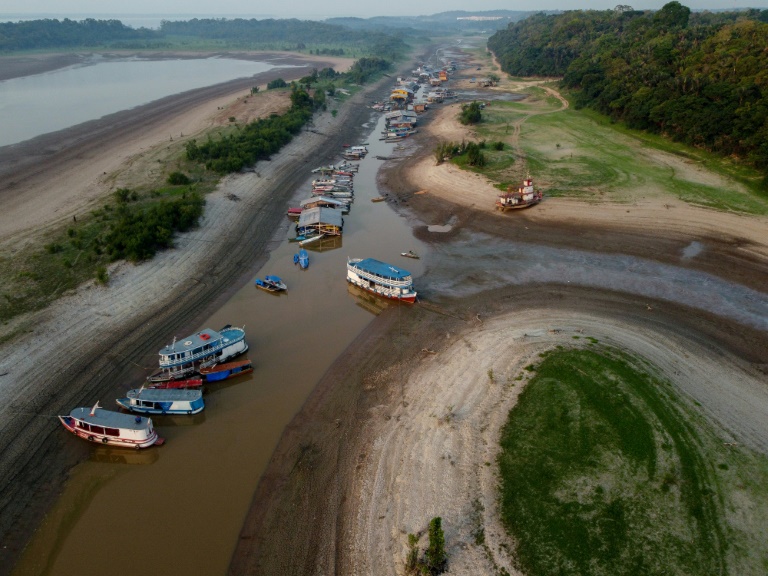A study has attributed the drought that struck the Amazon rainforest in 2023 into a devastating event to the climate crisis.
The analysis found that the drought was the worst recorded in many places and hit the maximum “exceptional” level on the scientific scale. Without planet-warming emissions from the burning of oil, gas and coal, the drought would have been far less extreme.
It also showed that the drought was made 30 times more likely to happen by global heating. The return of the natural El Niño climate phenomenon is associated with drier conditions but played only a small role, the scientists said.
According to the findings, the climate crisis is supercharging extreme weather across the planet, but the extreme Amazon drought is a stark and worrying example because the rainforest is already thought to be close to a tipping point into a drier state.
This would result in a mass die-off of trees in the world’s most important store of carbon on land, releasing large amounts of CO2 and driving global temperatures even higher.
Read also: Mother of girl reportedly killed by air pollution sues UK government
Millions of people in the Amazon have been affected by the drought, with some rivers at their lowest levels for more than a century. There have been drinking water shortages, failed crops and power cuts, as hydroelectric plants dried up. The drought also worsened wildfires and high water temperatures were linked to a mass mortality of river life, including the deaths of more than 150 endangered pink river dolphins in a single week.
“The Amazon could make or break our fight against climate change,” said Regina Rodrigues, a professor at the Federal University of Santa Catarina, Brazil, and part of the World Weather Attribution team that did the analysis.
“If we protect the forest, it will continue to act as the world’s largest land-based carbon sink,” she said. “But if we allow human-induced emissions and deforestation to push it through the tipping point, it will release large amounts of CO2. We need to protect the rainforest and move away from fossil fuels as quickly as possible.”
Simphiwe Stewart, who is a researcher at the Red Cross Red Crescent Climate Centre in the Netherlands and also part of the team, said: “Many communities living in the Amazon simply haven’t seen a drought like this before. People were forced to make huge journeys, dragging boats over dried up sections of river, to access food, medicine and other essential goods. It’s critical that government interventions are geared towards supporting communities to prepare for intensifying drought as the climate warms.”
Story was adapted from the Guardian.
